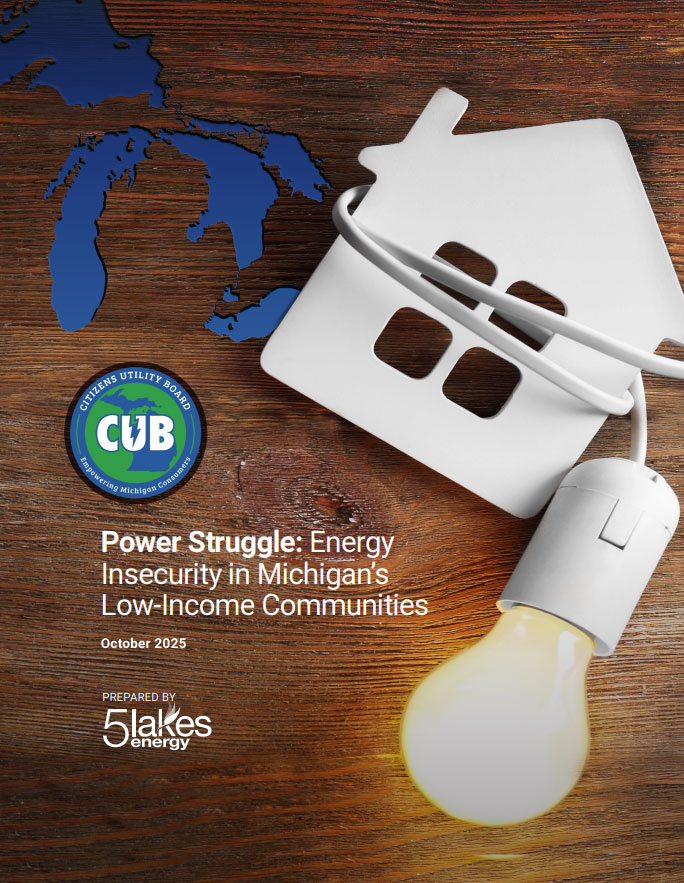This week, the Citizens Utility Board of Michigan (CUB) released a report titled Power Struggle: Energy Insecurity in Michigan’s Low-Income Communities. The report takes a critical look at the current state of energy affordability and reliability for Michigan’s low-income families. Along with evaluating the efficacy of current state and investor-owned utility policies, the report issues a number of recommendations for regulators and lawmakers to prevent residential power shutoffs.
The report paints a concerning picture of the current energy situation for households that struggle to pay bills each month. In the report’s section on disconnection practices, it is noted that “utilities in Michigan are steadily increasing their disconnections of low-income and senior customers even though numbers of delinquent accounts have declined.” It is unclear why the utilities are choosing to disconnect households in increasing numbers; the utilities are not required to justify their disconnection practices by demonstrating a financial benefit, such as a demonstration that disconnections lead to a reduction in uncollectible expenses. CUB recommends in the report that such a requirement be implemented by the Michigan Public Service Commission (MPSC).
Among the highlights of the report’s numerous and varied recommendations is a call for the MPSC to analyze the ways in which requested rate increases would impact customers below 150% of the federal poverty level. As stated in the report, rate case-specific analysis on low-income issues from MPSC staff would “anchor discussions among intervenors around ways to revise the rate request to improve treatment of low-income customers.” The report also argues that “to complete this analysis effectively and ensure that a new rate’s impact on low-income customers is thoroughly scrutinized, an extended period between rate proposals would be beneficial.” It is noted that this change would require action from the Michigan Legislature and that such action could be prompted by a formal recommendation from the MPSC.
The report also includes a review of percentage of income payment plan (PIPP) programs, drawing from the two pilot PIPP programs recently concluded by Consumers Energy and DTE. These payment plans limit monthly energy bills for participating households in proportion to each participant’s monthly household income, controlling what is known as a participant’s “energy burden.” Given the efficacy of PIPP programs in supporting low-income households and helping to reduce arrearages, the report recommends that all of Michigan’s investor-owned utilities be required to offer these plans.
Some other key recommendations found in the report include:
- An MPSC-ordered study to ensure that the allocation of costs among residential customers is as fair and reasonable as possible;
- That state and utility-administered programs offering bill payment assistance implement automatic enrollment processes for low-income families to increase the impacts of these programs and remove friction from the enrollment process;
- That the MPSC update its billing rules to either restrict or greatly limit cash payment requirements, which are currently imposed on certain customers who have histories of declined payments (i.e. bounced checks, declined credit cards, etc.); these requirements produce no evident financial benefit for utilities, accomplishing little more than reducing the likelihood of on-time payments.
The information shared here is only a preview of what is included in the full report. Click here to access the document and read all of CUB’s recommendations to improve energy access and affordability for Michigan’s low-income ratepayers.

